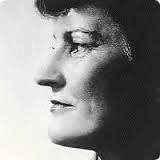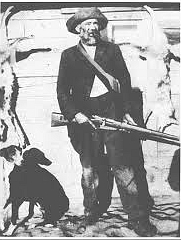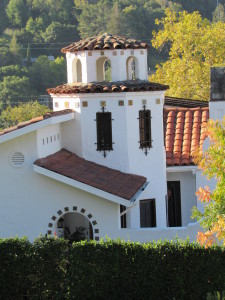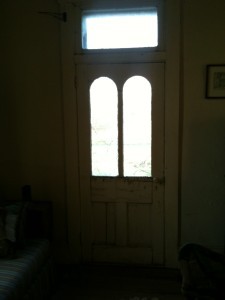Jon Frankel's Blog, page 15
February 19, 2016
The Way Things Go
Too many are going….
Cate
Too many getting off
As the door is closed
Why do they leave
Is it Christmas weather
The way the world is posed
In a window. The tether
Loosens and the weave
Gives way to space
And that is why they go
They can’t get back
Not because I didn’t call
Not because I didn’t know
Or the yellow leaves of fall
It is the deal of the pack
The way things go
February 11, 2016
HALF SONNET
Half Sonnet
Leafless bushes bangled
With carnelian beads. Lines of woodbine
Red above the rushes, tangled.
The crabapple branch like a spine
Of radiant drops. The sun bleeds
Light like a lantern in a mine.
The grasses lisping seeds
Across the board. I want to flop
And fall where the light leads.
There is no reason to stop
If it’s time to steal. The only cord
To tie bottom and top.
The trees catch light in a creel
Of branches, grey slivers wheel.
February 2, 2016
GUEST POET: MICHELLE
My friend Michelle has written another poem I want to publish here. It’s called LOVE. Enough said, please read.
LOVE
You have a laugh like you clip your fingernails, like you put on socks, change the channel.
I join you, feeling born again–
recovery, gratitude, destruction.
Is what is shock for me so ordinary
for you?
You would laugh whether morning or midnight, whether drunk or dreaming, naked or at the choir.
I join you, like it’s an Easter egg,
the village a hurricane tore through,
a gifted chalice shattered.
Your laugh is a casual shag.
I join you, a vow to keep.
Your laugh, the price of peanuts.
Mine, a wedding candle melted.
Is to laugh so much nothing
to you? While I see my first dawn?
I knew then that it was
any other day to you
when we laughed together
and I wanted you
forever.
To feel again to laugh
as any other stone to kick.
-Michelle
January 5, 2016
SONNET
When I was the earth and you were the sun
I watched as around my bobbin you spun
Your threads of light and at night I lay
In your arms watching a watchful sky
Cradled by care and swaddled by play
Dandled by a meadow of poppies and rye.
When you were the wind and I was the sail
We raced over waves and across the Sound
The reel of bow and breakers in a hail
Of thoughts that will not stand down
Swelled between the pull of the keel
And the breath in my belly at the wheel.
But now it is water who is my bride
And it is with water that I shall ride.
December 22, 2015
DEAR FRIEND
Dear Friend,
The Jack of Diamonds
And the Jack of Hearts
Are gone from the deck
And the King and Queen
Are down.
Never here, ever there
And again and again
Dear friend
December 11, 2015
BLIND GARDENS
BLIND GARDENS
Through blind gardens
Beyond pale portals
Of stone buildings lit
From within by morning sun
When the waters of Acheron rose
And the old Potter gathered his children
Around him like les oiseaux bleus
My friends among them, in leaves
And dropping doves they moved
In the cold mist of the air
Their voices stirred and faces grew
Crossed the threshold, and off they flew
Like minutes, gone.
November 18, 2015
AN OLD WOMAN’S DREAM
An Old Woman’s Dream
She awoke to the noise of glass
Breaking in the dark below
And watched the shades amass
On the ceiling and the window
Panes glow with a light like a spire
Rising in the room and turning.
She rose and opened the curtain;
Up and down the drive, pumpkins burning,
Eyes and teeth pricked out with fire.
In the morning she wasn’t certain.
It was the time of yellow eyes
In purple asters on the hillsides
So many suns in the sky.
November 10, 2015
MARI SANDOZ & OLD JULES
OLD JULES
By Mari Sandoz (1896-1966)
“Spring came to the range country with the swiftness of the swallows. In the morning snowdrifts lay deep along the wagon trails. In the evening the low valleys gleamed with lakes of rose and orange reflecting the delicate sky. In a few days translucent grasses pushed through the shallower reaches, misting the blue with green. Wild ducks darkened the open water and quacked and quarreled as they fed along the shores. In the swamps the hell-divers chattered and mud hens fought or led their early6 hatching out for swims, a dozen wine-colored plush birdlings bobbing along behind the black mother hen.”
Old Jules is a biography of an American pioneer, written by his daughter Mari and published in 1937. Mari Sandoz is an extraordinary figure in American letters and this, her first book, is a great book. I want to say it is one of the greatest books written about the American west, but I haven’t read that many so I won’t make the claim. I will say it is one of the greatest books I’ve read about a place.
“At the potash towns the old plants loomed gaunt, fire-stripped, the boilers and pipings red-rusted, the large chimneys tumbled down to piles of brick. The tar-paper shacks were gone, the towns dead. On all sides the hills pushed in.”
The place is the Sand Hills of Nebraska and the time is from the 1880-1928, the year in which Old Jules dies. The sweep is epic, as it should be, but the prose is the thing. Sandoz achieves several things seemingly without effort. She describes the sights, the smells, the attitude of place, of nature, people and the ephemeral things the people build against a relentlessly fickle environment, an environment hostile to permanence. She tells and retells stories she heard as a child, about the ordinary adventures of humans caught in a drama only partly of their making, a drama driven by greed and dreams and contradictory impulses: rapes, murders, suicides, corruption, yes; but also work, fencing, planting orchards, selecting ground, establishing institutions such as post offices, courts and police; and marriage, divorce, madness, adultery; the making of clothes, shoes, buildings, and the forging of weapons and tools; and the celebrations, weddings, funerals and Sunday dinners and dances of life on the frontier. History happens meanwhile, the indigenous Cheyenne and Sioux come and go, the wild game disappears, the railroad and towns arrive, the land is no longer free and then automobiles and telephones and finally radio and airplanes. Sandoz is a master of narrative and of language, for she captures the speech rhythms and phrases of her settlers, almost all of whom are immigrants: Polish, German, French or like her father, Swiss. Sandoz didn’t speak English until she went to school, against Old Jules’ wishes, at the age of 8. She lived in a linguistic environment that was French and German and, likely (according to Sandoz scholar, Richard Voorhees), Cheyenne and Sioux. Time passes as effortlessly as a gentle stream in this book. Change is its theme, and yet change happens, time passes, in the organic, elemental way of life, sometimes eruptive, explosive but mostly at the pace of erosion.
Old Jules was born in Switzerland in the 1850s to a bourgeois family. When his father tries to clip his wings the impulsive Jules quits medical school and takes off for America. He ends up as a freeholder in the panhandle of Nebraska. Here his obsessions unfold. Jules is a violent, abusive, paranoid and angry man with a tyrannical will for dominance. He marries 4 times, driving one wife insane. He rarely bathes, shoots a gun with deadly accuracy, and lives in filth, among books he orders from the government and abroad. He fights with everyone and whips and beats his children and wife Mary. He is a torrent, a walking storm. His dream, his obsession, is to settle the land which he has loved since first seeing it. He is a prophet. He knows good weather will succeed draught. He knows mild winters will punctuate the thankless freezing blizzards of the worst years. He develops seeds and plants that are draught tolerant (he is known by the end as the Burbank of the upper Plains). He will do anything to attract settlers, and is joined by his brothers, and his wife’s family, seduced to the harsh land by Jules’ charm and vision. By the turn of the century he is a legend, but his restless, reckless pursuit of sensation doesn’t desert him until near the end when he begins to drink and take morphine for chronic pain. By then his family seems to have forgiven him. I say seems because there is a current of anger that runs through this book that perhaps is his greatest gift to his daughter Mari. She does not in any way idealize this man, she simply presents him as a force few can resist or hide from. She has not forgiven him. When she wins a short story contest in the late twenties he sends her a letter saying, “You know I consider artists and writers the maggots of society.”
Sandoz herself had a remarkable career as a writer. Old Jules went to something like 70 publishers before it was accepted and became a hit. She was suspected throughout her life of plagiarism, and she struggled with editors and agents often, changing both frequently. The publishers were in the east, and they wanted to change her language to make it more accessible and conventional, which she resisted fiercely and with much bitterness. As a result she decided to move to NYC in the 1940s (she wrote a marvelous piece about her first apartment there) and essentially spent the rest of her life travelling between archives in the west and in New York, and living in Nebraska where she interviewed, and archived, the genealogy and lives of people. I mentioned Richard Voorhees earlier. I met Voorhees in connection with research I’m doing on Marianne Hauser, who was Sandoz’s friend. Voorhees was much involved with The Mari Sandoz Heritage Society, and visited Sandoz’s sister in Nebraska. He has seen the archive of material Sandoz kept, with her Native American friends relating stories going back 6, 7, 8 generations. Her research was massive and detailed and her files ran to many thousands and thousands of pages. She drew on this to write a series of histories and historical novels about the west. Old Jules is but one of what is known as the Trans Missouri Series, which includes a biography of Crazy Horse, a history of fur trappers called The Beaver Men, and Cheyenne Autumn. She also wrote a novel about her childhood called Slocum House.
Sandoz was a tough person. Her letters are strictly business. She was married when quite young but divorced her husband and had, it seems, contempt for relationships. In a letter she wrote in the late fifties she says she loves avant-garde art and experimental fiction. She mentions Celine as a writer she admires. To call her a woman novelist would be insane, yet she suffered through the realities of being a woman in a men’s world. Self-pity did not exist in her make up. I want to end this with a few quotes, but also, I would urge anyone who loves the English language to plunge into this book and luxuriate in the reality she creates a word at a time.
This is Jules, dressed up to meet Emelia, one of his wives when she first arrives:
“An old man. Gray under the greasy cap; limping despite all he could do—a slouchy stooped, careless figure with burning eyes. Then she noticed the hands: long fine fingers, smooth, almost white. They showed no brutalization, not the hard lot of a peasant that his appearance suggested.”
They arrive at his home at night:
“After supper, which they ate from the frying pan because there were no dishes, he showed his wife his guns, his traps, his stamp collection, his notary-public seal. She looked at them all, her hand never leaving her lap, and when she could she stole glances about the bare room, the floor of rough foot-wide boards with big cracks between, the homemade table with no cloth, the two windows staring blankly out into strange darkness, unrelieved by curtain or shade, the rusty stove with a brick for a fourth leg.”
This is her description of her mother, Mary, in middle age:
“Mary had three anaemic, undernourished children very close together, without a doctor. She lost her teeth; her clear skin became leathery from field work; her eyes paled and sun –squinted; her hands knotted, the veins of her arms like slack clothesline.”
A hail storm:
“The suddenly the hail was upon them. A deafening pounding against the shingles and the side of the house, bouncing high from the ground in white sheets. One window after another crashed inward, the force of the wind blowing the blankets and sheets into the room, driving the hail in spurts across the floor, until white streaks reached clear across it. Water ran in streams across the wide cracks between the boards.”
The defendant in a Murder trial:
“It was admitted that Nieman was wild, an unruly boy, a desperate youth. He had several knife scars, a bullet furrow or two. But his mother pleaded so eloquently for a new start for him, and her hair was white and waved and her cheeks beautiful, her dress soft, blue stuff. On the other side sat the widowed Helen, the passion of her dark eyes imprisoned in a body heavy with repeated child-bearing. Around her were seven sharp-featured, undernourished children. All of them were brown and wind-burned, their hands bony and calloused, their clothing old and patched, strange and frightened, the mother with no knowledge of English, no eloquence that the jury would know.”
Jules on his deathbed:
“They took [Marie] to the hospital room where an old, old man lay, his face a thin gray shell of wax with a few straggling beard hairs like wire. His faded eyes opened. They slid over Marie without recognition and closed, but not quite. Behind the slits he watched that they did not leave him alone.
“The sight shook the eldest daughter. From such a being, helpless, without personality, without fire, a man had grown as from a tiny cloud a storm spreads, to flash and thunder and roar and bring rain to the needy earth, in the end to disintegrate, to drift in a pale shred of non-descript cloud.”
October 23, 2015
BODY
BODY
By Harry Crews
Body proves a few elemental points about the art of fiction: it doesn’t matter if you care a bit about what the story is ‘about’, if the story is well told. Also, a writer can use satire and grotesque caricature and not seem like a heartless nihilist if the writer also is true to the characters. I haven’t read any other Harry Crews books, and I am aware that he has devoted readers, sort of like Bukowski. So what I say may be obvious to those readers. Anyway, Body is about bodybuilders. yeah, I find bodybuilders at best to ludicrous, like professional wrestlers. I just don’t give a damn. Russel ‘Muscle’ Morgan is a bodybuilding trainer and his Eliza Doolittle is Dorothy Turnipseed whom he transforms into Shereel Dupont. Shereel and Russell are out to win the Ms. Cosmos contest. The book takes place over a day or two in the Florida hotel where the Cosmos contest is being held. The training for this is intense and bodybuilders are maniacal about what goes into, and comes out of, their bodies. The relationship between trainer and bodybuilder is brutal, elemental, loving and sadomasochistic, with the sado and maso polarities frequently reversed. Shereel is poised to be a winner, which requires total concentration. Unfortunately, the Turnipseeds, from rural Georgia, show up to cheer their daughter/sister on, and among them is Nail Head, her fiancee. Things do not go well. It is a comic novel, but it took a while for me to take my bearings, as the descriptions of rednecks, bodybuilders, Florida hotel managers etc are so horrifically stereotyped. These people are small minded, homophobic, racist morons. Nail Head is a paranoid Vietnam vet with a razor sharp knife, a psychopath who can at any second explode into violence. The women in the family are obese.
Crews from the start concentrates on the carnal. The book is body obsessed. Shereel’s sister Earline falls for a bodybuilder and the way Crews handles this love match is brilliant, and shows how he manages to hit so many notes in such a short song. They are at the pool and the bodybuilder, Billy Bat, is doing a routine. Earline is convinced that he is having some sort of attack and tackles him to administer mouth to mouth. When he resists the entire Turnipseed clan descends on him, pinning him to the ground. Several chapters later Earline is taking a bath and reflecting on the incident. Billy Bat at some point sticks his tongue in her mouth and she is both astonished and aroused. In the bath she thinks about this while watching her body. Crews describes her flesh in loving detail. The nastiness of his prose is gone and there is sheer sensual beauty here, of an extremely fat woman masturbating in a heart shaped tub, feeling both ashamed and ecstatic. There are no false notes. She is soon joined by Billy Bat and they, in three chapters, fall in love and seduce each other. Crews plays it for everything, it is cornball, intensely erotic, weird. But the most important relationship of course is between Russel and Shereel, and how Shereel must navigate the monomaniacal attention any sport requires and her conflicted loyalties. There is a moment near the end of quiet and such loving kindness between them, that contrasts with the violent, domineering and almost Master Slave relationship of the early chapters that I gasped. Because by the end I cared deeply who would win and who lose the contest. Even Nail Head is taken seriously. I suppose any book with a contest as its main plot element is inherently suspenseful, but Crews hardly needs it. Somehow this carnival of lost souls become stand ins for the demented human family, for passion, the perfection of art, the need to love and be loved.
October 16, 2015
FLYING IN FEAR

i HAVE A TERRIBLE PHOBIA. i CAN’T FLY. i HAVE FLOWN, YES, ON EVERY KIND OF AERIAL CONVEYANCE KNOWN. i’VE flown on TWIN ENGINE PROP PLANES. I’ve flown on WW2 era propeller planes. I’ve flown in rural Burma, island hopped in Fiji. I’ve flown around the world a couple of times. My first flight was from San Francisco to New York in 1960, 6 days after I was born. So you’d think I’d be used to it. But I hadn’t been in a plane since 1994, until last week. In fact, I hadn’t been alone on a plane since 1988. And 1990 was the last time I went on vacation without children, except for brief road trips to familiar places. It took a certain amount of Xanax to get me on these planes, but I took them and realized that 1) I really don’t like to fly and 2) I love airports and travel! I hate traffic jams but I love drinking a beer at a little table at 11 in the morning with a New York Times crossword puzzle, surrounded by strangers tapping their cell phones.
I had two great books to protect me while 39000 feet in the air: Hit Man, by Lawrence Block, and Available Dark, by Elizabeth Hand. These are books I couldn’t put down, except to let my eyelids droop and head hang forward for an hour of fitful, Xanax induced rest. Hit Man is perfect. the lack of adjectives annoyed me a bit, but its laconic tone and frequent murders were a delight. Elizabeth hand is a great writer. She has the best references to music of any author I know. Every obscure band of the 70s and 80s gets a mention in her books, and the allusions are dead perfect, as is her ability to describe bad sex and bad drugs. She lights the crummy, weird pagan interiors of the world up with a color drenched, hard boiled prose as gorgeous as any I’ve ever read.
I was in California to give 2 readings, catch up with some old (if not ancient) friends, and visit my father. San Francisco is a city I love and the only city other than New York where I’d like to live. I’ve been there a couple of times as an adult (1977 and 1990) but never alone, and not since the big change. Big change? Yeah, urban menopause. That’s when the rich, in this case young, take over every square inch of a city leaving only hidey-holes for the rest of us. New York is so thoroughly gentrified you would never know a real city once existed there. But San Francisco still has a few square blocks of junkies, porn theatres and vomiting drunks. Naturally that’s where I read, at The Exit Theatre. There were 4 people in the audience, and I knew 3/4s of them. That was OK. Miette, my publisher, videotaped it and we connected with my old publisher and friend Jennifer Joseph. Also there were Start and Jennifer (another Jennifer, there are three in San Francisco, one couldn’t make it). We had a most incredible meal at a Vietnamese dive with a grimy, luncheonette facade and old formica tables. Stuart, who is a remarkable visual artist and musician, put me in his ‘moving portrait’ series. You will find it here. I love these nearly static portraits. Click on each one. there is something hilarious about the ones that don’t move.

Marianne Hauser
Courtesy Michael Kirchberger
While there I met with Marianne Hauser’s son and we went through part of the archive he has at home of her letters and photographs. I also had lunch at the Zuni Cafe, and it was as good as you would think, with a perfect roast chicken and margarita’s almost as good. the it was off to LA, a place I have not seen since 1965.
The novel I was reading from is set in LA and I was a little nervous about this, but it was fine. The city was eerily like the one I had described. And all i could think, as I walked through the 98 degree heat, was ‘why would anyone want to live anywhere else’? LA is genuinely apocalyptic in a way that New York no longer is. But like New York, being there made me wonder how the hell we could be having the current Nazi like ranting about immigrants. Really? I think we should throw all of the Americans out of the country, build a wall, and live here with just people from other countries, who make better food, are more friendly, and more interesting that your corn dog chomping craft beer swilling gym bag toting spandex stretching American lard assed bigot. Really, just fuck the whole country.
I read at a theater called Beyond Baroque. there was a decent audience. We filled the tiny bookstore. the bookstore had the most wonderful collection of books. All of the RESearch titles. A CD of Jack Micheline reading. All kinds of remarkable stuff. I spent the rest of the time hanging out at my father’s, and visiting my friend Nancy M. Driving was most exciting. Traffic jams. Freeways. Learning to take the roads. And then of course it was time to come home. Fantasy ends. No more rental cars, baggage checks, staring at cheap chemical upholstery. No more fucking palm trees! Call me shallow, but I like those palm trees. I would definitely move FOR THE WEATHER.




